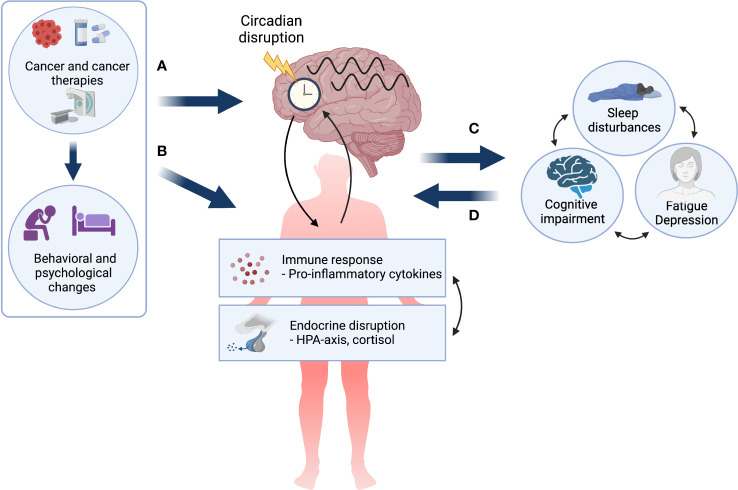Figure 1.
The circadian disruption hypothesis of cancer- and cancer treatment-related symptoms. Cancer and its treatment, as well as associated behavioral and psychological changes may (A) directly impact the circadian system resulting in circadian disruption in both biological and behavioral rhythms, and (B) lead to a dysregulated immune response and endocrine disruption, which are themselves bidirectionally linked and may both impact the circadian system. Circadian disruption may result in cancer- and treatment-related symptoms (CTRS) or exacerbate pre-existing symptoms (C). Finally, it is important to note that once manifested, chronic CTRS burden may further alter both behavioral and pathophysiological factors creating a self-perpetuating negative loop (D). Created with BioRender.com.

